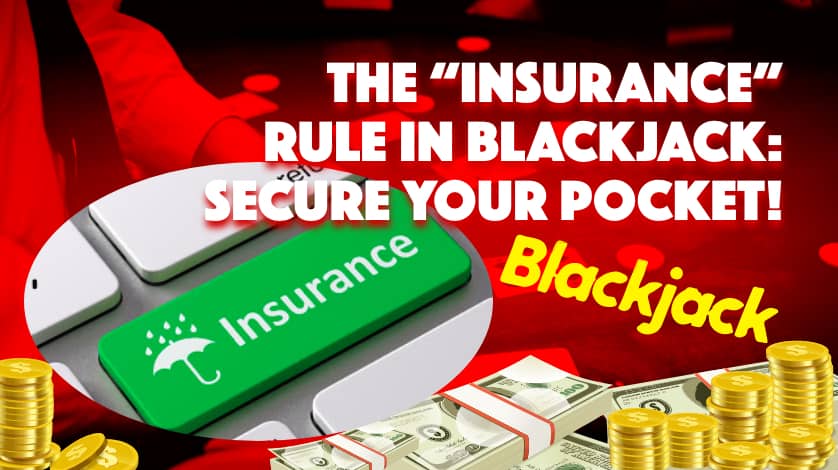The "Insurance" Rule in Blackjack: When to Secure Your Pocket?
Feb 15, 2020

Every blackjack player sooner or later starts looking for ways to reduce the house edge as much as possible. One of the options that stands out is an insurance bet. Some say that they rely on this tactic for minimizing losses, while others claim that it only increases the house edge and costs you money in the long run.
Read on to learn which side is right and whether you should try implementing this technique in your own gaming experience (or when).
How Does the Insurance Bet Work?
Insurance is a side bet offered to players in certain conditions. If the dealer is showing an Ace, this bet becomes available. After players place insurance (if they do), the dealer shows their hole card. If their hand turns out to be blackjack, players win the bet.
In online blackjack, you will automatically see the pop up offering you take on insurance. It’s up to you to accept or leave it. The goal is to try to break even on the hand, even if losing the main bet.
The insurance bet plays out independently from the main bet with a payout of 2:1. Meaning, the player wins $2 for every $1 they’ve put. If the dealer doesn't get blackjack, the bet is lost, and the game goes on as usual. In most games, the insurance bet must be no less than half of your original wager – for example, the wager being $20 and the insurance bet being $10.
When Insurance Is a Bad Bet
The chances of you winning the insurance bet are approximately 30%. Subsequently, this means you will lose the bet in 70% of instances. These are rough figures, but they still represent how likely you are to lose money on the insurance.
Let’s do the calculations for an imaginary scenario. Here is what will happen if you placed 100 bets based on a $50 stake:
- Considering the game pays 2:1 (as we’ve discussed earlier), you’d win $100 30 times.
- You’d lose $50 70 times.
- Your total winnings would amount to $100 x 30 = $3,000.
- The total losses are $50 x 50 = $3,500.
- In the end, your net position would be a $500 loss.
For players who don’t implement any additional strategies, this is clearly an undesirable scenario. So, beginners should stay away from this bet.
When to Buy Insurance
In usual circumstances, the math doesn't add up when you take on an insurance bet. But there is one notable exception when it's actually a great way to secure your funds. Insurance can be very beneficial for card counters and other advantage players.
If you know a thing or two about card counting, this can help you decide when the insurance bet is optimal. Particularly, card counting can help you determine (at least, to some degree of certainty) when the dealer is likely to have blackjack. The reason is that by keeping count of the decks, you can tell when there is a surplus of cards valued at ten left in the shoe.
For example, the other two players don’t have a ten in their hands. This indicates that out of 47 cards remaining, there are 16 that are valued ten. With a 1 in 3 chance of the dealer hitting blackjack, the prospect of saving yourself with an insurance bet becomes very enticing.
Now, the choice is yours. We've looked into scenarios where insurance is an optimal move, and when you should stay away from it. If you want to practice this strategy at the top-rated, most entertaining online casino, head over to Loki Casinos. You'll be greeted with a fantastic welcome bonus bundle and have an ultimate selection of games to choose from.
Back to the blog




















